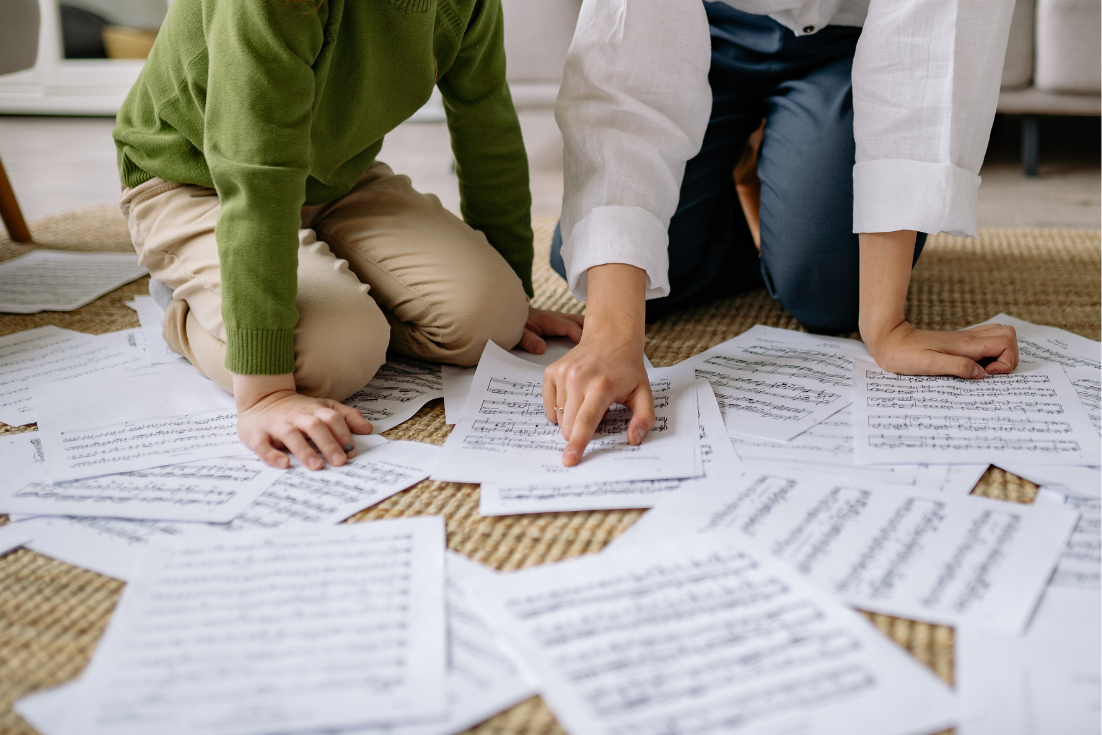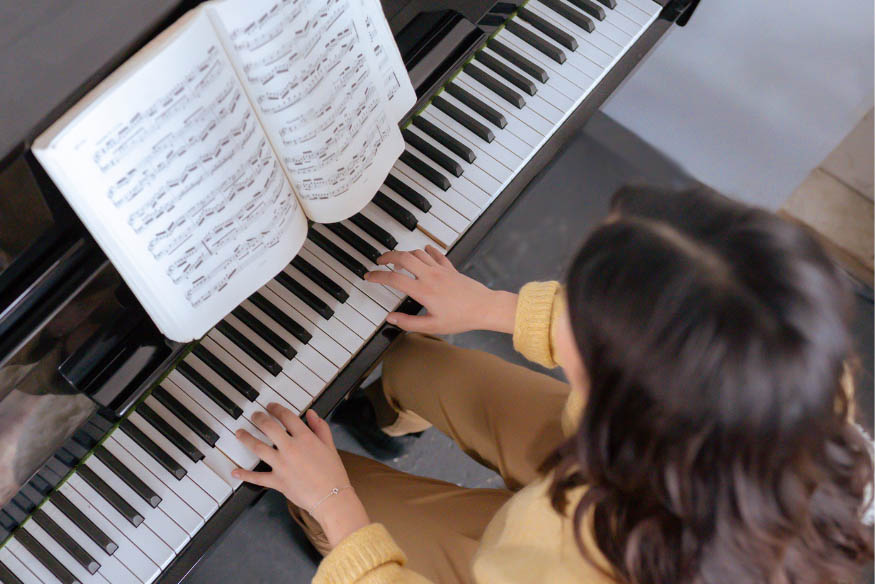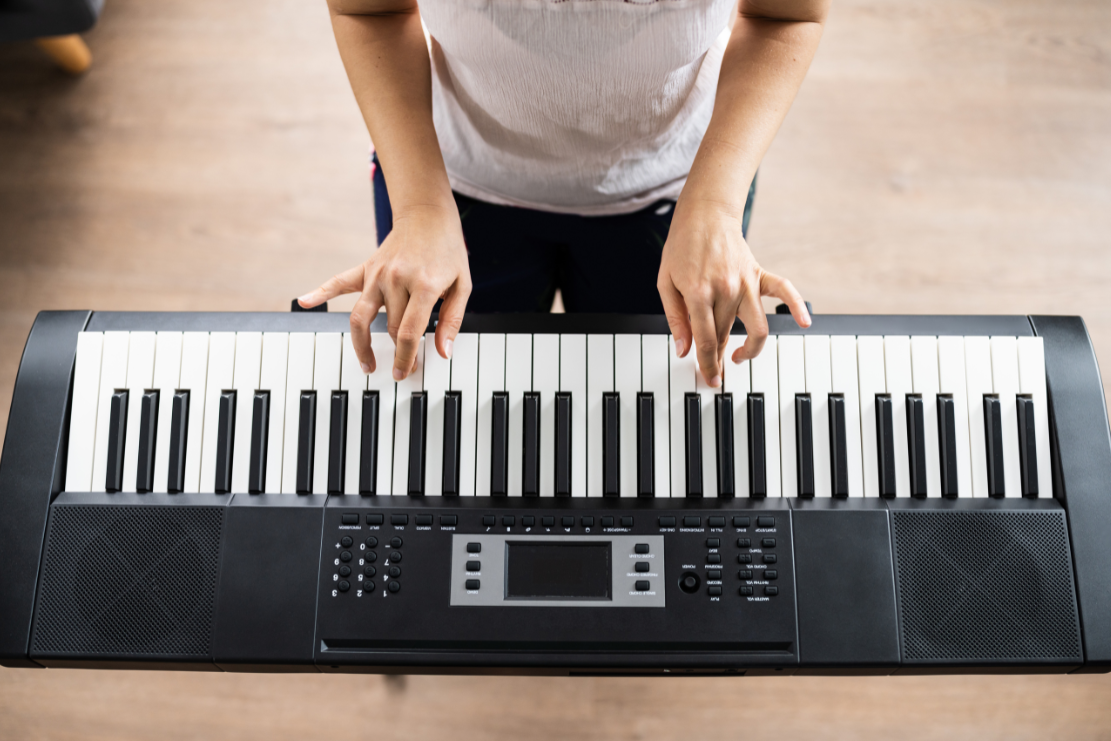
Bridey’s teaching style shifts to match each student and she accommodates their particular interests. I’ve never come across any other music lessons that can compare!
SARAH PETTIGREW


In the Exam Track students work towards a theory of music exam, a graded piano exam, and a special interest project each year. Exams are through Trinity College of London and are completed digitally where available. For more information about music exams please click here.
Choose this option if you like having specific goals to work towards, you’re committed to daily practice, and you enjoy focusing on only a few pieces for most of the year.
In the time I had lessons with Bridey I improved a great deal. I put this down to her ability to tailor the lessons to suit me, her enthusiasm and friendliness, and her dedication to teaching accurate technique.
HAMISH WHILLIS

The Repertoire Track offers a great overview of a range of styles and musical eras. Students work through more advanced lesson books with classical to modern pieces (and everything in between!). Music theory and technique are woven through lessons for a well-rounded approach.
Choose this option if you enjoy variety, want to learn a range of pieces each year, and like to get involved with the social and collaborative opportunities available in the studio.

I was so lucky to find Bridey. Very quickly I was listening to my daughter play a whole range of tunes and enjoying watching her grow with the achievement.
TESS HARVEY


The Contemporary Track places as much importance on creating music as on playing music. As part of this track students will develop a comprehensive understanding of music theory as they explore the creative aspects of composing, arranging, and improvising.
Choose this option if you are comfortable working with technology, are excited to create original music, and enjoy experimenting and working independently.
The Repertoire Track is the most popular as it covers a broader range of styles and eras. It’s also a good track to start with as it’s possible to try out composing and the initial piano exam, and then transfer to one of the other tracks if desired. Or stick with the Repertoire Track and get a great overview of different techniques and styles.
Absolutely! There’s a lot of overlap between the different tracks so it’s relatively easy to change focus.
I do recommend completing a year in one track before transferring.
For rotating lessons three students attend the same 60 minute lesson. During the lesson students rotate through three different stations:
- One-on-one lesson with the teacher
- Working independently on the digital piano
- Completing music theory lab activities
Rotating Lessons are different to group lessons, as although students are attending their lesson at the same time, they aren’t working on the same material. All activities are tailored to the age, stage, and interests of individual students.
If you’d like more information about rotating lessons click here.
For one week each term our usual weekly rotating lessons are replaced with three different workshops. Students from the Foundation and Expansion programmes are able to attend as many as they want.
There are a variety of topics including technique, style, theory, and music history. The workshops are a great opportunity to explore new topics and cover other material in more detail.
Students of different ages and stages attend the same workshops, which have a range of activities and material suitable for different levels.
Regular practice is essential to making progress, so developing good practice habits will help you get the most out of music lessons.
Students in the Repertoire and Contemporary Tracks can aim for a few practice sessions each week, whereas students in the Exam Track should try to schedule daily practice time, particularly in the lead up to exams.



